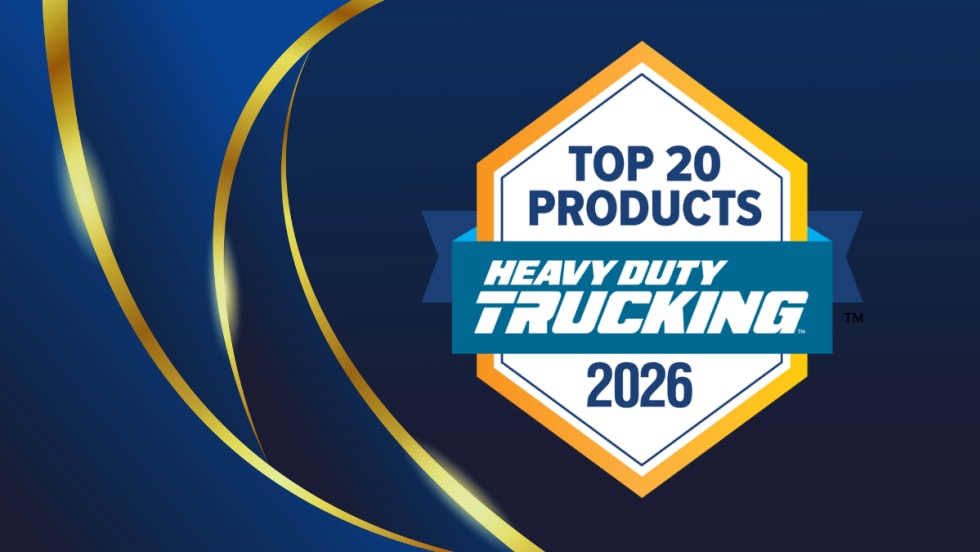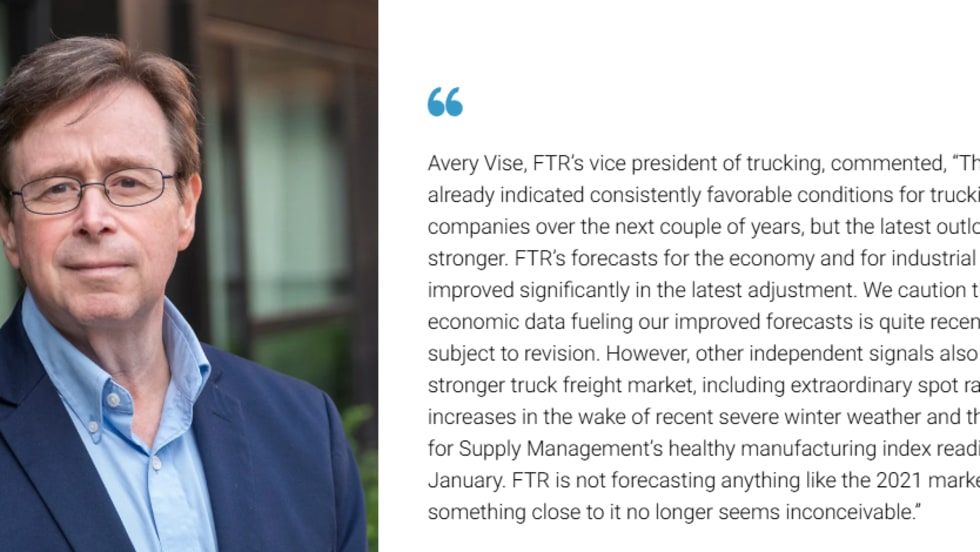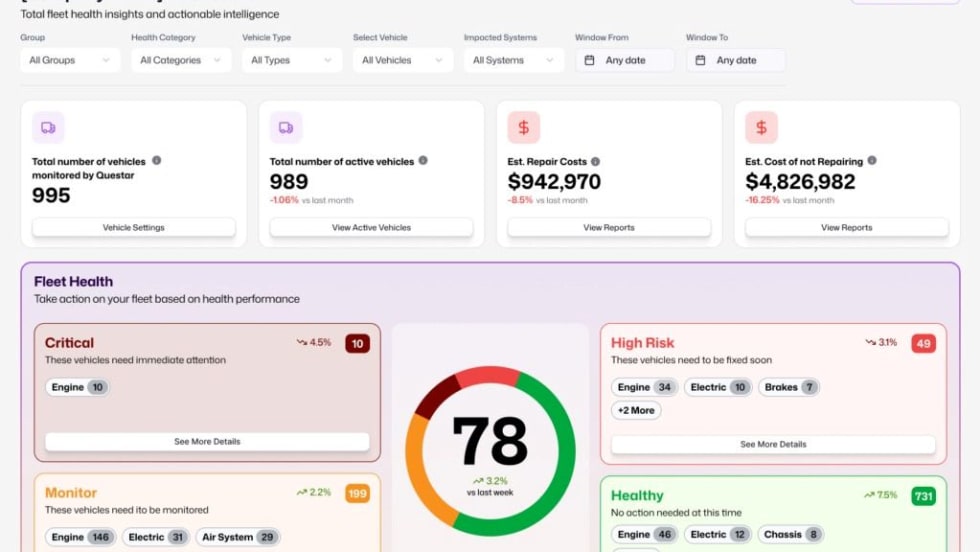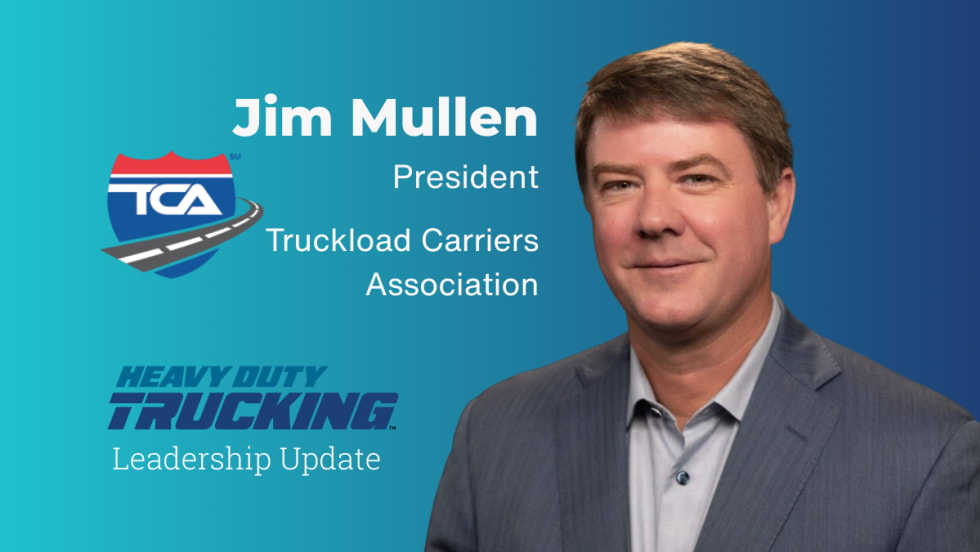Four weeks on from Election Day, the results of the 2022 midterm elections are now clear, indicating how Congress will function come the new term in January.
Few in the political game saw the midterms turning out as they did, with Republicans barely attaining a majority in the House and Democrats growing their razor-thin Senate majority with election to a full term of Sen. Raphael Warnock (D-GA) on Dec. 6.
Impact of Midterm Elections on Trucking Goals
The dynamics of the aftermath of these elections suggest there will be scant impact on key issues being pressed on Capitol Hill by trucking lobbies. These include growing truck parking; fighting laws such as California’s AB5, restricting the use of independent contractors; supporting recruitment and retention of drivers and technicians; and enabling the hiring of younger drivers.
Excepting for AB5-type laws, the rest of this wish list touches on highway safety of truckers and growing the American workforce, which are bipartisan issues.
On the other hand, the contentious issue of mandating speed limiters is squarely in the hands of the Federal Motor Carrier Safety Administration. With public comments mostly focused on what the limited speed setting should be, the agency is a long way yet from finalizing this one. and Congress has no role to play here.
Another hot issue for trucking that’s not likely to see much more done for it on Capitol Hill, in the near term, anyway, is vehicle electrification. That’s simply because the gargantuan Infrastructure Investment and Jobs Act (IIJA) alone includes $16.45 billion in continued spending through programs such as Rebuilding American Infrastructure with Sustainability and Equity (RAISE) as well as $5 billion in new spending through the National Electric Vehicle Infrastructure (NEVI) program; $2.5 billion for additional charging and alternative fuel infrastructure; and $1 billion in new spending for Class 6 and Class 7 zero-emission vehicles and infrastructure.
By the way, there’s a fresh angle to consider about potential laws to limit independent contractors. Democrats also ran better than expected in state races this time, flipping some governorships and state legislatures.
“Trifecta” is a term invoked when one political party holds the governorship and majorities in both chambers of the state legislature. In 2022, Democrats scored trifectas in four states, Maryland, Massachusetts, Michigan, and Minnesota, and lost a trifecta in Nevada. And the GOP lost a trifecta in Arizona. So, it is conceivable that legislation akin to AB5 may be introduced in those freshly all-blue states. Stay tuned.
New Sheriff in Town for the House Transportation and Infrastructure Committee
There’s a specific House committee switch coming in January that may or may not appeal broadly to trucking interests. The longtime ranking member of the House Transportation and Infrastructure Committee, Rep. Sam Graves (R-MO), is now the presumptive chairman of T&I come January.
Graves is already well-versed in transportation issues and his conservative stance promises aggressive oversight of government spending. That may resonate with many. On the other hand, his “no” vote on the IIJA infrastructure package likely still doesn’t sit well with those n trucking who lobbied for its passage..
In a Dec. 1 statement of his priorities, Graves remarked, “We need to cut through the red tape, particularly the new rules and regulations President Biden has implemented to choke off America's domestic oil production… We also have to conduct rigorous oversight of the administration and eliminate waste, fraud, and abuse… Our infrastructure dollars should be spent on projects that strengthen our supply chain and improve roads and bridges.”
The Nuts and Bolts
Divided rule will remain in force on Capitol Hill. But that picture is a bit more complicated. Infighting is ongoing between presumptive Speaker of the House Kevin McCarthy (R-CA) and members of the conservative GOP Freedom Caucus and there’s dissent from elsewhere in the Republican ranks. If enough Republicans don’t coalesce around him, according to McCarthy, Democrats may decide who the next speaker is.
Even if he does capture the speakership, he’ll have to run the always contentious House with a weak majority, of just three or four seats, which would force him to horse-trade with GOP members and with the Senate leadership of both parties.
The latter will be due to the flipping of a battleground seat by John Fetterman (D-PA) and Warnock’s return giving the Democrats’ a 51-50 majority. That’s mighty slim, but it’s just enough to attain a working majority. That means Democrats will control all committees and so can push legislation to the Senate floor by party-line vote and do so faster. And leaders gain a workaround to overcome the objections of a single senator, such as Joe Manchin (D-WV) or Kyrsten Sinema (D-AZ), who both famously played maverick cards in the current Senate.
Whopping Wrong Call
Even on Nov. 6, it was becoming apparent the widely anticipated “red wave” of coast-to-coast Republican victories, including in statehouses, would be largely rolled back by Democratic gains that nearly ran the table.
Why the result was more of a “red puddle” is because most of the pollsters and pundits got it wrong. But who can blame them? Ahead of Nov. 8, they were working off some pretty grim data points: President Biden’s approval rating was in the basement, the economy was on the right track but with inflation at a ghastly 40%, no one knew for sure if the pandemic was really over, and Russia’s war on Ukraine seemed to have no end in sight.
The 2022 midterms wound up as a gigantic missed call, only surpassed by The Chicago Tribune gaffe of calling the 1948 election with this blaring headline: “Dewey Defeats Truman.”
Wave or puddle, the spoils go to the victors. If these midterms have a coda, it is that being just a little more victorious can tip the scales more than expected.














